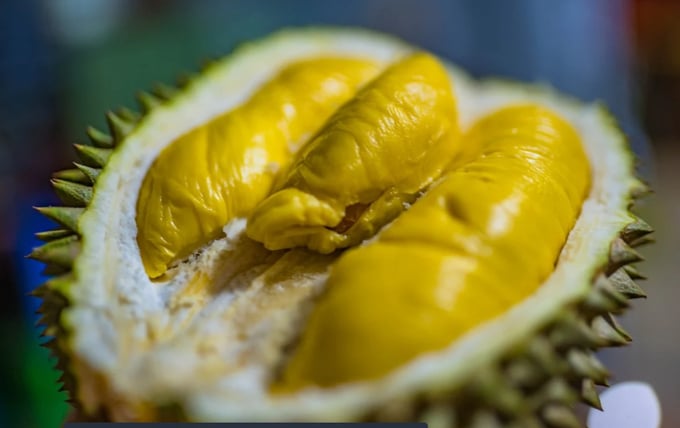May 17, 2025 | 05:06 GMT +7
May 17, 2025 | 05:06 GMT +7
Hotline: 0913.378.918
May 17, 2025 | 05:06 GMT +7
Hotline: 0913.378.918

The Philippines will send more durian to China as part of a new deal involving the tropical fruit trade. Photo: Shutterstock
The Philippines is on a mission to expand its exports to the world’s largest market for durian consumption, and it hammered that point home on Monday by hyping up a deal it made at China’s largest import expo.
The push to boost exports of its tropical fruit – including the Puyat variety of its durian – comes as the Philippines has seen an escalation in its territorial dispute with China over the South China Sea in recent months.
One of the Philippines’ durian distributors in China, the Dole (Shanghai) Fruits and Vegetables Trading Company, signed a purchasing agreement with the Philippine embassy in China on the second day of the China International Import Expo that kicked off on Sunday and extends to Friday.
“Philippine durian is delicious, sweet – if it’s not sweet, you get your money back,” Philippines ambassador to China Jaime Florcruz said at the ceremony.
However, details of the deal remain scarce, including the value and volume of fruit products. What’s known is that it covers mainly two types of Philippine fruit – durians and papayas.
Dole said in an official statement that China has seen its durian sales record a compound annual growth rate of more than 20 per cent since 2019. And it pointed out that the value of China’s market for durian is soaring.
China opened its doors to fresh Philippine durians for the first time ever after a state visit by Philippine President Ferdinand Marcos Jnr to Beijing in early January, when a fresh agreement was signed between the countries.
Bilateral trade with the Philippines fell 16 per cent from a year earlier to US$54.1 billion in the January-September period, according to Chinese customs data. And China imported US$14.36 billion worth of Philippine goods in the first nine months of this year, down 19 per cent from a year earlier.
Durians have been China’s top fruit import since 2019 by value, with major sources being Thailand, Malaysia and Vietnam.
And the Philippines is not the only country keen on further tapping the booming Chinese market.
Malaysia’s deputy minister of agriculture and food security, Chan Foong Hin, said via Facebook last month that his department had met a Chinese customs delegation in Malaysia on October 5 and signed a six-point statement covering durians.
The statement noted that China “agrees to speed up its risk assessment of fresh Malaysian durian, and both sides will cooperate on promoting quarantine inspection work”.
According to Malaysian media reports, Nor Sam Alwi – deputy director general of the Malaysian Department of Agriculture – has expressed hopes that his country will be allowed to export fresh durians to China from next year – coinciding with the 50th anniversary of diplomatic relations with China. Currently, only frozen durian is imported from Malaysia.
Nearly all of the durian consumed in China is imported, and China is expected to consume about a million tonnes this year. The country’s first batch of home-grown durians did hit the market in June, but it is expected to take years to produce a sizeable, sustainable yield of durian.
Feng Xuejie, director of the Institute of Tropical Fruit Trees at the Hainan Academy of Agricultural Sciences and a researcher at the Hainan Academy of Agricultural Sciences, was quoted by the state media CCTV as saying that Hainan would only produce around 50 tonnes (110,000 pounds) of durian in 2023, accounting for only about 0.005 per cent of all the durian eaten in China this year.
(SCMP)

(VAN) Fourth most important food crop in peril as Latin America and Caribbean suffer from slow-onset climate disaster.

(VAN) Shifting market dynamics and the noise around new legislation has propelled Trouw Nutrition’s research around early life nutrition in poultry. Today, it continues to be a key area of research.

(VAN) India is concerned about its food security and the livelihoods of its farmers if more US food imports are allowed.

(VAN) FAO's Director-General emphasises the need to work together to transform agrifood systems.

(VAN) Europe is facing its worst outbreak of foot-and-mouth since the start of the century.

(VAN) The central authorities, in early April, released a 10-year plan for rural vitalization.

(VAN) Viterra marked a significant milestone in its carbon measurement program in Argentina, called Ígaris, reaching 1 million soybean hectares measured.